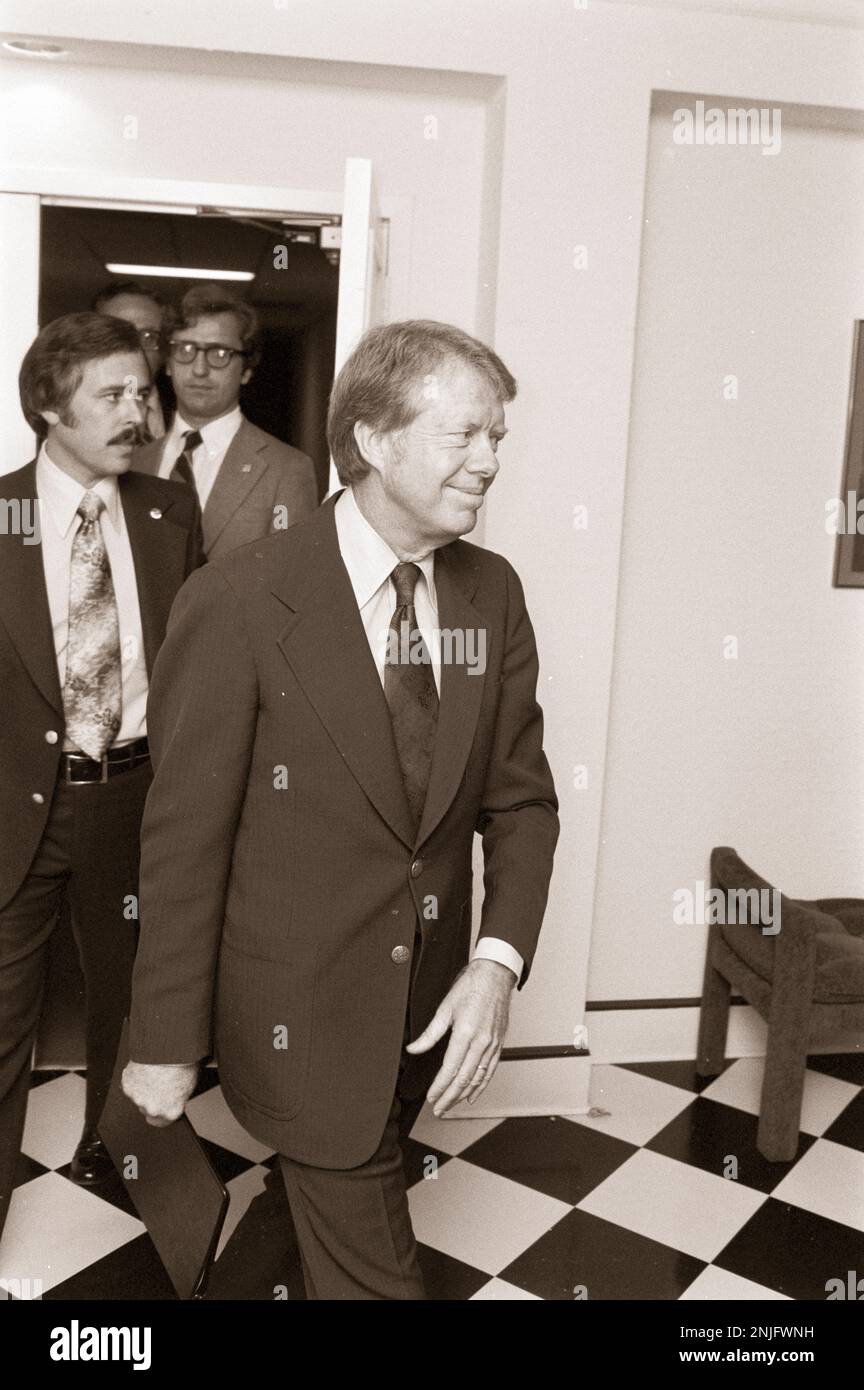President Jimmy Carter leaves a meeting with White House Counsel ROBERT LIPSHUTZ

Image details
Contributor:
Ken Hawkins / Alamy Stock PhotoImage ID:
2NJFWNHFile size:
95.2 MB (5.1 MB Compressed download)Releases:
Model - no | Property - noDo I need a release?Dimensions:
4706 x 7074 px | 39.8 x 59.9 cm | 15.7 x 23.6 inches | 300dpiDate taken:
28 May 2022More information:
This image could have imperfections as it’s either historical or reportage.
James Earl Carter Jr. (born October 1, 1924) is an American retired politician who served as the 39th president of the United States from 1977 to 1981. A Democrat, he previously served as a Georgia state senator from 1963 to 1967, and as the 76th governor of Georgia from 1971 to 1975. Carter was born and raised in Plains, Georgia, graduated from the United States Naval Academy in 1946, and joined the United States Navy, serving in the submarine service. Afterward he returned home, where he revived his family's peanut-growing business. He then manifested his opposition to racial segregation, supported the growing civil rights movement, and became an activist within the Democratic Party. From 1963 to 1967 he served in the Georgia State Senate and in 1970 was elected governor of Georgia. As a dark horse candidate not well known outside of Georgia, Carter won the 1976 Democratic presidential nomination, and narrowly defeated incumbent Republican president Gerald Ford in the 1976 United States presidential election. On his second day as president, Carter pardoned all Vietnam War draft evaders. His administration established the United States Department of Energy and the Department of Education. He also created a national energy policy that included conservation, price control, and new technology. Carter pursued the Camp David Accords, the Panama Canal Treaties, and the second round of Strategic Arms Limitation Talks. He also confronted stagflation. The end of his presidency was marked by the 1979–1981 Iran hostage crisis, the 1979 energy crisis, the Three Mile Island accident, the Nicaraguan Revolution, and the Soviet invasion of Afghanistan. In response to the invasion, he escalated the Cold War when he ended détente, imposed a grain embargo against the Soviets, enunciated the Carter Doctrine, and led the 1980 Summer Olympics boycott. In the 1980 Democratic presidential primaries,